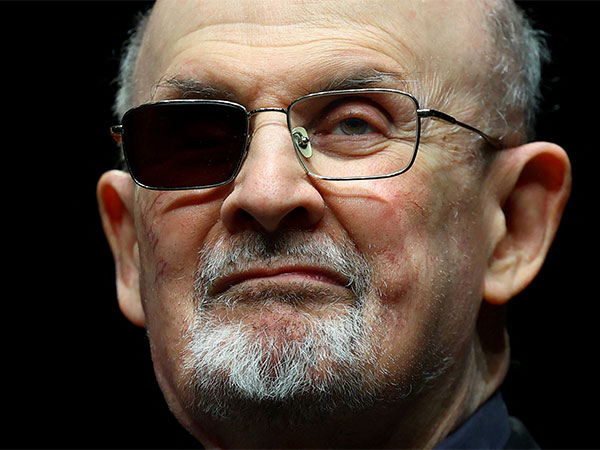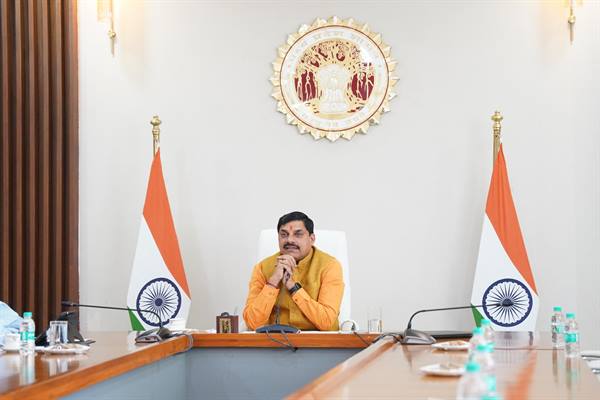"Tackling climate change must be inclusive and equitable," says German Consul General Barbara Voss
Dec 04, 2024

By Ujjwal Roy
Kolkata [India], December 4 : The 6th edition of the GSDP Conversation Series, titled "Gender and Diversity in the Changing Climate," successfully concluded today at the Goethe-Institute in Kolkata.
Organised under the Indo-German Partnership for Green and Sustainable Development (GSDP), the event focused on the critical role of gender equality and diversity in fostering resilience against climate challenges such as depleting natural resources and biodiversity loss.
The GSDP was established in 2022 following the signing of the Indo-German Partnership for Green and Sustainable Development by Indian Prime Minister Narendra Modi and German Chancellor Olaf Scholz.
This partnership aims to enhance cooperation between India and Germany, aligning efforts with the Sustainable Development Goals (SDGs) of the 2030 Agenda and the Paris Agreement. It reflects the shared commitment of both nations to tackling global climate challenges and fostering sustainable development through innovative and inclusive solutions.
The event brought together policymakers, women farmers, academics, multilateral institutions, and civil society representatives for dynamic discussions on gender-responsive and inclusive approaches to climate action.
Interactive exhibitions, performances, and success stories highlighted transformative initiatives under the Indo-German partnership, such as using Geographic Information Systems (GIS) for local planning, street theatre to challenge gender norms, and programs promoting women's leadership in Farmer Producer Organisations (FPOs).
In her keynote address, Barbara Voss, Consul General, German Consulate, Kolkata, emphasised, "The GSDP is rooted in the belief that tackling climate change must be inclusive and equitable, also in Eastern India where more than 300 million people live across 11 states. It recognises that policies are most effective when they reflect the voices and needs of all genders."
"By focusing on capacity-building programs, this partnership is empowering women and marginalised groups, equipping them with the knowledge and skills needed to succeed in sustainable practices and green technologies. This initiative is a testament to the transformative power of Indo-German cooperation, fostering inclusive growth and sustainable development," she added.
The event also highlighted the impact of GSDP projects like the Enhancing Rural Resilience through Appropriate Development Actions (ERADA).
One direct beneficiary, Rina Devi from Musaila village, Gaya district, Bihar, shared her success story, "Through the ERADA project I have worked with 25 villagers to register for the Udhyam Aadhar scheme and start their own businesses. The Indo-German initiative has diversified my livelihood, increased my income, and empowered me to invest in my children's education and support my family. Economic empowerment has given me the freedom to make decisions, voice my opinions, and contribute meaningfully to my community."
The event also highlighted Germany's Feminist Development and Foreign Policy, focusing on Rights, Resources, and Representation to address gender inequality. By integrating these transformative approaches, the Indo-German partnership continues to align with global commitments to the SDGs and the Paris Agreement.
Julie Reviere, Country Director of GIZ India, who was also part of the panel discussion, reflected on the role of women, saying, "My biggest endeavor has been pushing for transformative approaches that place women at the forefront, even in traditionally male-dominated sectors like energy. By reframing problem statements to prioritise women's access and needs, we not only addressed technical challenges but also created impactful, inclusive outcomes. This shift required persistence, but now it's becoming the norm across our projects--whether in energy, natural resource management, or entrepreneurship. It's proof that with determined leadership, real change is possible."
The "Gender and Diversity in Changing Climate" conversation was enriched by diverse insights from speakers including Saravanakumar Veerasivam, Sector Specialist for Natural Resource Management at KFW, Reviere, Kanta Singh, Deputy Representative at UN Women, and Elisabeth Richter, Development Cooperation Counsellor at the German Embassy in New Delhi, who moderated the discussion.
The Indo-German Partnership for Green and Sustainable Development (GSDP), initiated in 2022, is a strategic framework fostering cooperation between India and Germany on sustainable development.
Focused on the SDGs and the goals of the Paris Agreement, GSDP addresses global climate challenges through innovative, inclusive, and gender-transformative approaches.




















